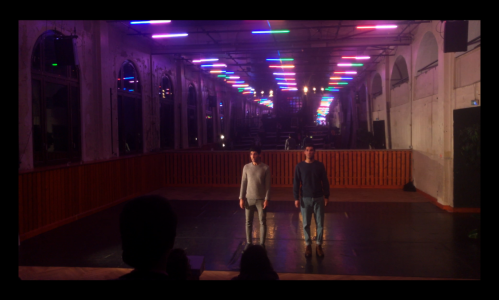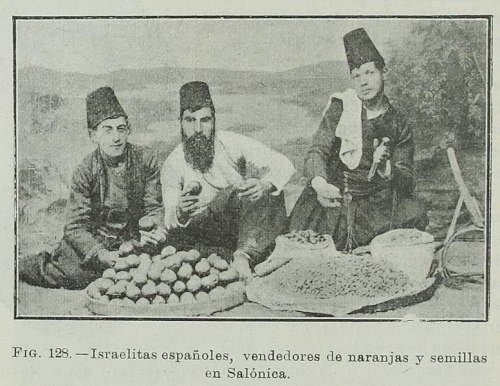A public letter to Nata and Sam, Afghani twin brothers who grew up in Iran and who since 2015 have lived in Germany.
In 2019 they saw Mund-Stück (Mouth Piece) at Theater Rampe in Stuttart, a show I made and performed with Rita Pauls which involved a curious approach to learning / absorbing German and Germany, via a week of random hitch hiking. In fact, barely speaking more than some German phrases we’d learnt to carry it out, the concept Rita and I stuck to was to ask drivers the same question – “What In Your Opinion Needs to be Said?” – and request to record whatever reactions or anwers they gave while driving, in order then to learn it by heart over about 6 months. In the performance we revoice a patchwork 45min edit of these responses, verbatim and together in sync – having also learnt and practiced the hesitations, breaths, thinking time, mistakes etc.
In an after-show talk we mentioned that we’d be interested to some day commission two other artists – with different motivations to assimilate into a given culture / language – to go through the same journey / process, and create their own performance. Nata later approached us and said he’d be up for it… Last weekend at Ballhaus Ost in Berlin we performed both versions. I wrote to them on their birthday 2 days later, and with their consent now share these thoughts here.
___
Dear Nata, and Sam
First of all – happy birthday. I hope you’re still enjoying the good feeling of having done something truly fabulous on Saturday.
It was so special for Rita and I to be in the audience for the 6pm showing of your version of Mund-Stück, and then to swap places so you could then watch us in ours, at 9pm. The evening really felt like a celebration, for all four of us, and for both audiences.
After we finished, you came to us with sparkling eyes and told us how much you loved watching it. I remember thinking this must be how it is for people who practice a certain sport and then watch others doing it, live or on TV… just watching, but with that special body/mind knowledge of what it means to physically do it: a deep sense of what is at stake, of the risks, of the work or training that goes into achieving certain movements or that particular state requiring both alertness and calm. It was the same for us watching you. So great to feel that the four of us could share this awareness of what lies behind the performances we gave.
And then you said something that has been coming back to me, since then. You said, ‘…and your version is so much better than ours!’
Don’t worry – I know what you meant. I know it was your way of telling us that you could see and appreciate the work we’ve done, and I thank you for that. I’m sure you’d agree that there are many reasons why it makes no sense to ‘rate’ the two versions next to each other – and as I think through those reasons now, I’m starting to understand better what made your performance so very precious and unique. Yes, ok, our version is longer, it involves more voices, more switching between different characters. It’s more ‘sophisticated’, you could say.
But being sophisticated or perfect was never really part of the plan behind creating Mund-Stück. The question of virtuosity is something Rita and I have been grappling with since the start. For example, despite some similarities our aims are very different from Joris Lacoste’s with his project ‘Encyclopedie de Parole’, whose actors re-speak other people’s words verbatim with astonishing perfection. I don’t remember any mistakes there; the vulnerability on stage wasn’t real but represented (for example Emmanuel Lafon’s extraordinary rendering of a mentally unstable person in the Paris Metro which left me in tears, and still hasn’t left me). The situation of performing in Mund-Stück is never an entirely stable one. We’re forever teetering on the edge of language and expression; there’s always the risk of falling out of sync, of one or other tongue not quite getting into the right position between teeth or lips, of saying something wrong and producing some other meaning we’re unaware of, of memory failing. We’re all four of us somehow tresspassing on-stage – mad dilletant imposters with no business selling tickets for something that might collapse so easily.
When we worked together in Stuttgart, I remember telling you how Rita and I realised at a certain point that we wanted the audience’s focus to be shifting constantly between three different ‘poles’ while watching us perform:
– 1. The meaning of the text we are speaking (which, if or when what we say is understandable, should take care of itself)
– 2. Everything about the job we are doing, the ‘task’
– 3. Who we are as people and the relationship between the two of us.
With your performance, the big difference to ours is of course in 2 and 3, and how they relate to each other. The ‘distance’ between who you are and the job you’re doing is just so much bigger than it is for Rita and I! (Even if it’s been 18 years since I last performed on stage, I’m a theatre artist and I’m comfortable in these buildings. I’ve become a performance ‘animal’, and Rita perhaps even more so, despite her being 18 years younger than me.) Without wanting to go into it too much, let’s say this clearly: you arrived in Germany 5 years ago with nothing. It’s hard for us, the privileged ones, to fully comprehend what you must have gone through, but we have an idea. And so the ‘job’ (2) that you’re doing on stage is infused with this awareness of who you are (3) – and the journey you’ve taken to get to the point of standing in front of us to do it!
This journey of yours includes not just the week-long trip when you recorded the voices, but also before that the moments of seeing our version the first time, meeting us, talking with us, building trust with us. I think trust is really the magic ingredient in this work. In our version, we put a lot of emphasis on the trust between Rita and I as friends, and the unique ‘reciprocal’ trust between us and the strangers who picked us up while hitch-hiking.
It strikes me that despite you choosing not to travel by hitch-hiking, the ‘trust’ element in your version is also very complex and deep. It’s grounded in that huge ‘leap of faith’ you made to get involved with us in the first place. It’s infused of course with the trust between all four of us and the amazing people at Theater Rampe who decided to support every step of your project – financially, practically, dramaturgically, emotionally. As with ours, the text you speak in your version is framed and driven by an ‘economy of trust’ between you and the people speaking to you (ie, a trust not to be taken for granted, a trust which easily comes and goes). Then later in the long process of learning the text, and turning it into a performance, the trust you had in us when we told you, it is possible, you can do it… just think of how many times you must been tempted to give up! As I say in our intro, ‘it seems kind of impossible…’ And finally, in the performance itself, there’s something like a call to the audience that they are being trusted to be good witnesses. It’s not a simple situation of sitting comfortably in the dark watching people whose job it is to give us a show. There’s vulnerability here and the level of risk and effort coming from the stage is way up in the red. I think this really is why we make live work, and what we hope for when we go to see it.
I cannot tell you how happy it makes me to think that all this happened, and that you made it to Berlin at last, both of you travelling away from home for the first time as professional artists! It seems clear that this is the start of something for you both – the ideas you shared with us for what you want to do next are so surprising and great. I look forward to it all, and thank you again for believing in this project and taking it as far as you did.
with love and respect
Ant





